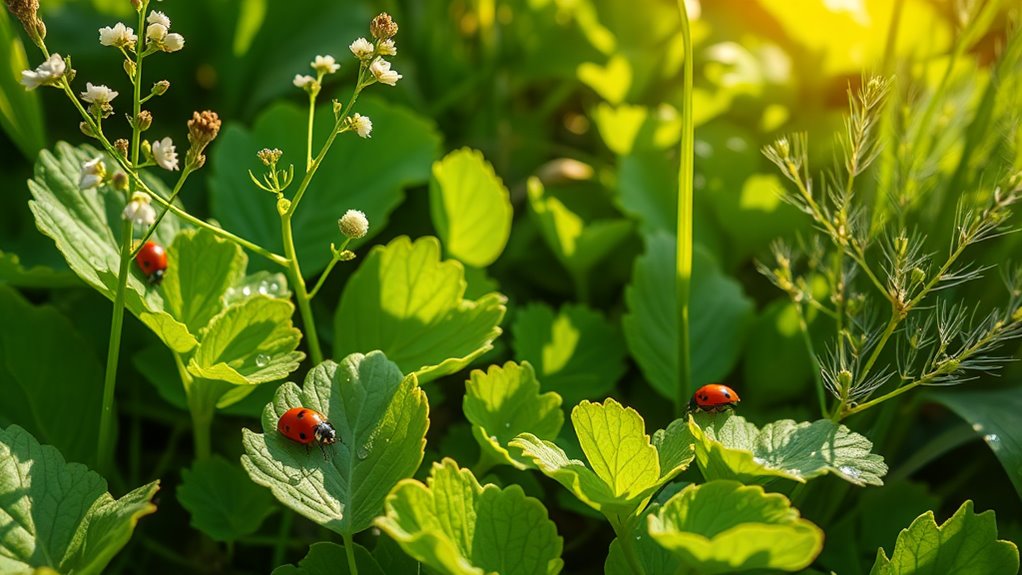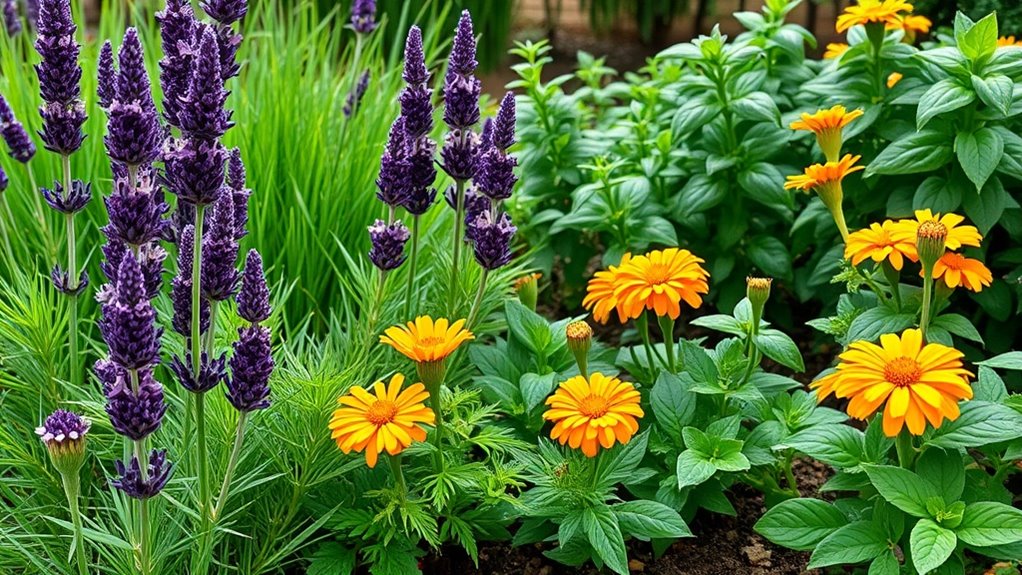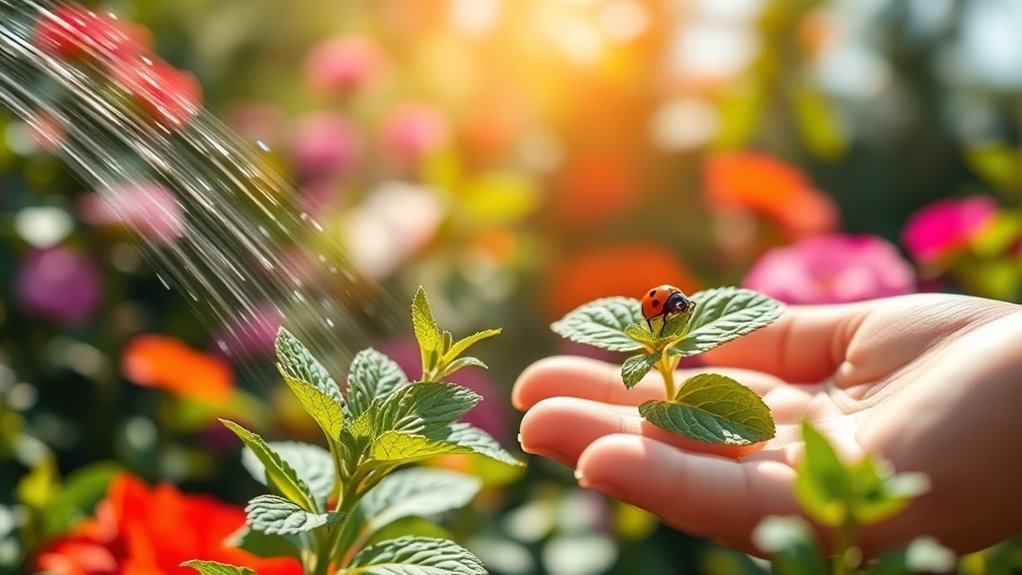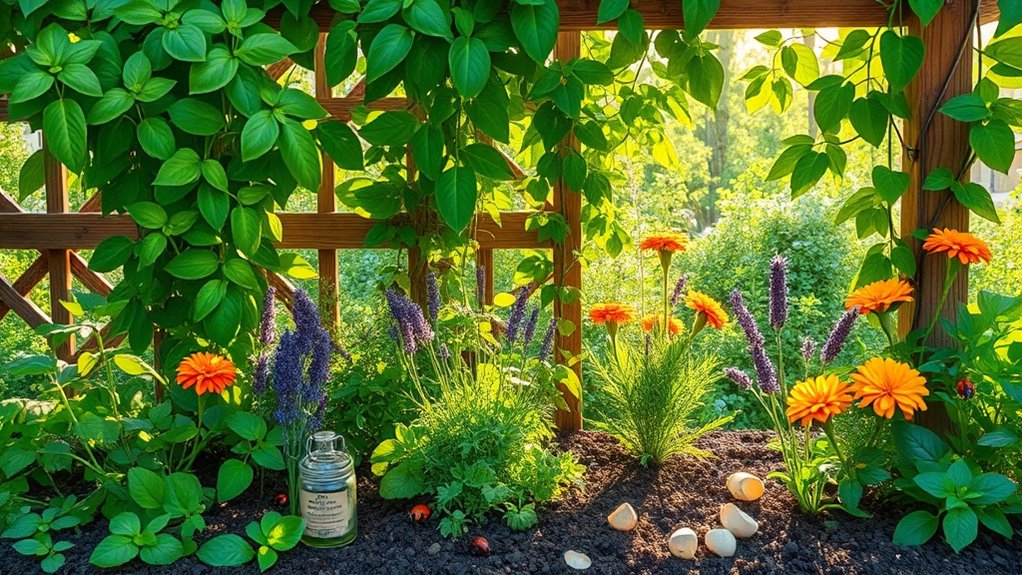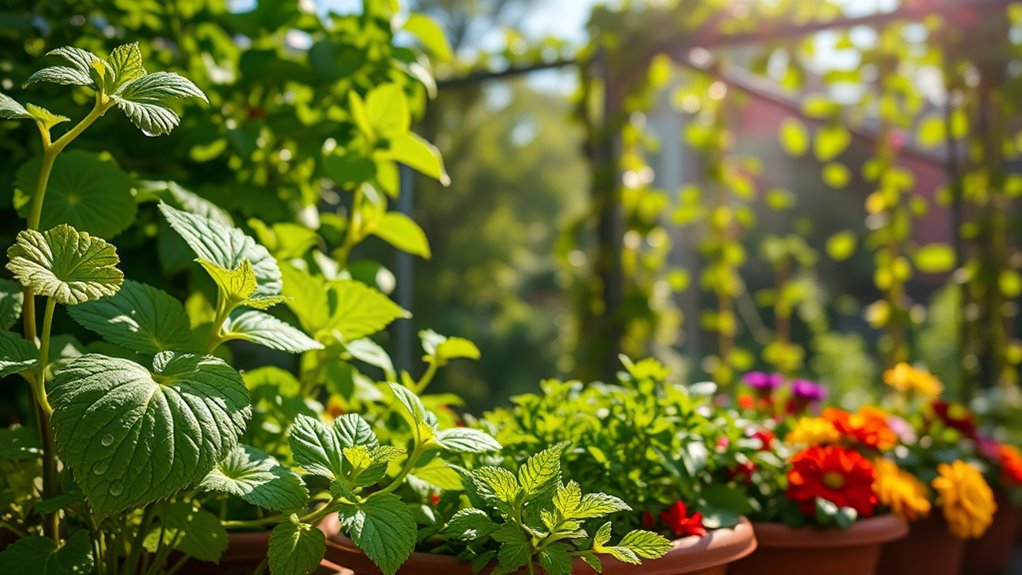The Easiest Way to Keep Aphids Off My Veggies Naturally
Aphids can be likened to unwelcome guests at a garden party, eager to feast on your precious veggies. To combat these pests naturally, you can employ strategies that promote a healthy ecosystem. Introducing beneficial insects, like ladybugs, is one effective method. But there’s more to this approach than just inviting the right guests. Discover how companion planting and homemade repellents can enrich your garden’s defenses.
Understanding Aphids and Their Impact on Vegetables
Although they may seem small and harmless, aphids can significantly damage your vegetable garden.
These sap-sucking pests reproduce quickly, leading to infestations that stunt plant growth, distort leaves, and reduce yields.
For effective aphid control, monitor your plants regularly, and look for clusters on new growth.
Understanding their lifecycle and damage potential can help you implement timely interventions to protect your crops. Additionally, utilizing natural methods such as introducing beneficial insects can further deter aphid populations.
Introduce Beneficial Insects
Introducing beneficial insects to your garden can be a game-changer when it comes to controlling aphid populations. Ladybugs and lacewings are particularly effective, as they voraciously consume aphids at various life stages. To attract these allies, consider planting nectar-rich flowers and maintaining diverse plant species. Incorporating companion planting principles can further enhance the presence of these beneficial insects in your garden.
Homemade Natural Repellents
A powerful way to deter aphids from your vegetables is by utilizing homemade natural repellents.
These mixtures can effectively disrupt aphid feeding and keep your plants safe.
Consider trying:
- Neem oil: A natural pesticide that disrupts the aphid lifecycle.
- Soap spray: A mix of mild soap and water that suffocates pests.
- Garlic spray: Strong-smelling mixture that aphids find unappealing.
Additionally, using unconventional remedies can enhance your pest control strategy and provide long-lasting protection.
Companion Planting Strategies
Companion planting offers a practical solution for keeping aphids at bay while promoting healthy vegetable growth.
By pairing plants like marigolds with your veggies, you create a natural deterrent. Marigolds emit compounds that repel aphids and attract beneficial insects such as ladybugs.
Additionally, planting garlic and chives can mask the scent of your target crops, further reducing aphid attraction. This strategy aligns with effective companion planting practices that enhance garden health and deter pests naturally.
Regular Monitoring and Maintenance
Regularly checking your garden not only enhances the benefits of companion planting but also plays a vital role in keeping aphids and other pests under control.
By consistently monitoring your plants, you can:
- Identify early signs of aphid infestations.
- Utilize natural predators, like ladybugs, effectively.
- Adjust your soil and plant conditions to discourage pests.
- Implement natural pest control strategies that are eco-friendly and effective.
Stay vigilant, and your veggies will thrive!
Sustainable Gardening Practices
While you cultivate your garden, implementing sustainable gardening practices not only helps you manage aphids but also enhances overall soil health and biodiversity.
Use crop rotation to disrupt aphid life cycles, and introduce beneficial insects like ladybugs for natural control. Incorporating organic mulch retains moisture and regulates temperature, while compost enriches the soil, creating a resilient environment for your veggies to thrive.

